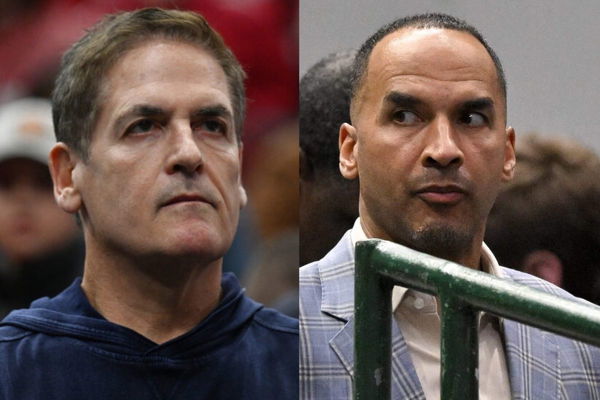

Mark Cuban’s decision to sell a controlling stake in the Dallas Mavericks still feels like the moment the franchise’s playbook flipped. In December 2023 Cuban sold a majority share at about a 3.5 billion valuation while keeping a meaningful minority stake, and he has since said he expected to remain closely involved in basketball decisions. The sale was meant to pair Cuban’s basketball instincts with new owners’ deep pockets, but the deal’s aftermath exposed how fast control can shift when league governance and contract language collide.
The fallout grew sharper when Luka Doncic was traded in early 2025 to the Lakers in a blockbuster move that reshaped the NBA landscape. That trade, which centered on Anthony Davis coming to Dallas, sparked protests from fans and long debates across the league about timing and value. Mavericks general manager Nico Harrison defended the direction the front office took, while Cuban has publicly said he regrets the way he handled the sale and the loss of practical control he thought he would keep.
This week a fresh detail bubbled up on social media when Kevin Gray reposted a clip of Cuban explaining what happened behind closed doors. In the video Mark Cuban admits he played a role in how everything unfolded then tersely sums up the personal cost by saying “Yeah, I fucked up”. He also told viewers “…some things happened internally and the person [Nico Harrison] who traded Luka [Doncic] didn’t want me there”. That line has become the clearest public signal yet of a real power struggle inside the Mavericks since the sale.
ADVERTISEMENT
Article continues below this ad
Mavericks minority owner Mark Cuban on why he was not able to retain control of basketball operations when he sold the team:
“…some things happened internally and the person [Nico Harrison] who traded Luka [Dončić] didn’t want me there.” #MFFL
(🎥: @theallinpod) pic.twitter.com/0eUpgOUXfC
— Kevin Gray Jr. (@KevinGraySports) September 10, 2025
Cuban has added context in longer interviews, saying he tried to build contractual language that would keep him in the basketball loop but that the league’s rules and the final written deal left the official governor with the final authority. “I fully expected to run basketball. The NBA wouldn’t let me put it in the contract. They took it out,” he had said, confirming that the Doncic decision would never have happened if he still has an influence.
“I was involved and then we went on this run where we went to the Finals, and rather than trying to interject myself all the time, I was like, ‘I don’t want to get in the way, we’re rolling.’ And that was a mistake,” he had explained.
He has also said he has legal paperwork showing attempts to preserve influence, and that the NBA pushed back on language that would let him attend and vote in every decision. Those claims are central to why the sale feels, to many fans and to Cuban himself, unfinished business.
So where does that leave the Mavericks today? Cuban kept roughly a 27 percent stake and thought he would help steer personnel decisions, yet the Doncic trade showed how governance rules and new leadership can reassign power fast. The team’s on court issues, injuries, and fan anger have all fed the narrative that the sale changed not only who signs checks but who ultimately picks players and builds the roster.
ADVERTISEMENT
Article continues below this ad
What’s your perspective on:
Is trading Luka Doncic the biggest blunder in Mavericks history, or a strategic masterstroke?
Have an interesting take?
Mavs GM Nico Harrison has no regrets about Luka Doncic trade
Nico Harrison arrived in Dallas with a long resume from the sports world and a clear philosophy about how to build a team. His history at a major sports company gave him player relationships and a business eye. He he has repeatedly framed the Doncic deal as one made to change the Mavericks’ identity on defense and balance the roster for sustained success. That approach, while unpopular with many fans, traces back to his public messaging about long term planning and roster construction.

via Imago
Apr 9, 2025; Dallas, Texas, USA; Dallas Mavericks general manger Nico Harrison look on during the third quarter against the Los Angeles Lakers at the American Airlines Center. Mandatory Credit: Jerome Miron-Imagn Images
The trade itself sent shockwaves. On paper the package centered on Anthony Davis plus pieces and a future pick, and the move came with a heavy price in fan trust. The Mavericks then faced the practical test of injuries to key pieces and a bumpy stretch of results that left the team short of expectations. Those events only widened the gap between a front office convinced by its math and a fan base still mourning the loss of a generational franchise player.
ADVERTISEMENT
Article continues below this ad
Harrison has not backed down from his decision and has told ESPN plainly “There’s no regrets on the trade”. He has argued the move fits a defensive blueprint and that some trades only show their value over time. Mark Cuban for his part has described learning about the deal by text and said he told Harrison he disagreed, which has added to the public sense of a split between the franchise’s past steward and the new leadership running day to day basketball choices.
ADVERTISEMENT
ADVERTISEMENT
ADVERTISEMENT
ADVERTISEMENT



Is trading Luka Doncic the biggest blunder in Mavericks history, or a strategic masterstroke?